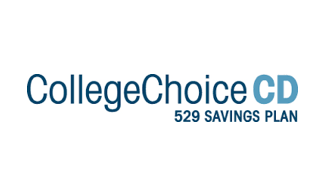
Two FDIC-insured options are offered in the CollegeChoice CD 529 Savings Plan: (1) fixed-rate CDs with one-year, two-year or three-year maturities, and (2) the Honors Savings Account, a high-yield savings account available from College Savings Bank, a Division of NexBank. The plan ceased offering InvestorSure CDs and CollegeSure CDs to investors as of August 2, 2016 and October 21, 2016. InvestorSure CDs and CollegeSure CDS issued prior to those dates will continue to be managed and serviced by CollegeSure until their maturity dates. As of May 31, 2024, the CollegeChoice CD 529 Savings Plan is closed to new enrollments.
- Program typeSavings
- Inception2011
- State agencyIndiana Education Savings Authority (IESA)
- Tax deduction
- Program ManagerCollege Savings Bank, a Division of NexBank
- Program distributorCollege Savings Bank, a Division of NexBank
Eligibility
State residency requirements:
Who can be a participant/owner in the program?
Significant time or age restrictions imposed by the program:
Alternative 529 Plans
Other great plans to consider
You are not limited to opening your own state's 529 plan, so shop around. Here are some highly rated options to consider:
Plan
Our Rating
Fee Score
Performance
Contributions
Maximum contributions:
Minimum contributions:
Does the program offer an e-gifting platform for receiving gift contributions?
Investment Options
Age-based/Enrollment Year investment options:
View more age-based investment optionsStatic investment options:
View more static investment optionsUnderlying investments:
View a full list of this plan’s investment optionsUnderlying fund allocations:
Portfolio Fees & Performance Lookup
See the best 529 plans, personalized for you
A good place to start
Fees & Expenses
Enrollment or application fee:
Account maintenance fee:
Program management fees:
Expenses of the underlying investments:
Taxes and other Benefits
- For single filers, 20% amounting to up to$1,500/yr
- For joint filers, 20% amounting to up to$1,500/yr
Example
Married filing jointly residents contributing $100/month can expect an additional $0 a year in tax savings.
Program match on contributions:
State tax deduction or credit for contributions:
State tax recapture provisions:
State definition of qualified expenses
State tax treatment of qualified distributions:
State tax treatment of rollovers:
Does the sponsoring state exclude the value of an account for state financial aid purposes?
Does participation in the program provide beneficiaries with any advantages in qualifying for resident tuition status at state institutions?
Is there a rewards program or outside scholarship program that works with this program?

Upromise Helps Families Save for College
